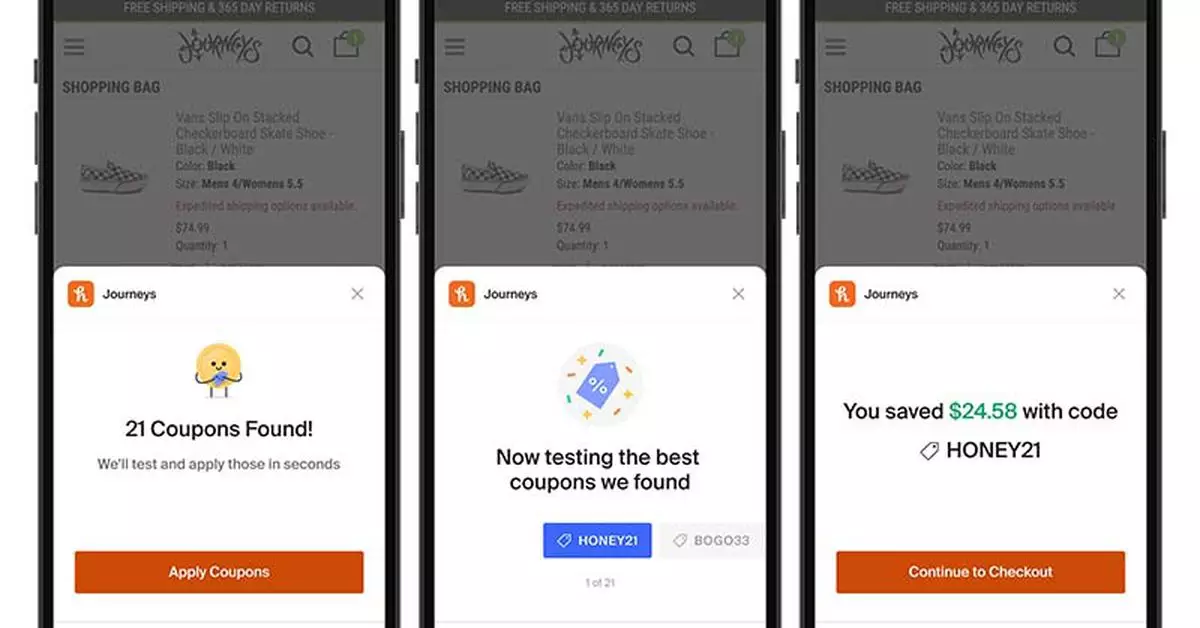In today’s internet-driven shopping landscape, many consumers are searching for ways to save money while indulging in their retail therapy. One tool that has gained significant traction over the years is the PayPal Honey browser extension. While it is marketed as a clever assistant that helps users locate discounts and promo codes during online transactions, recent criticism has cast a shadow over its reputation. YouTuber MegaLag has brought attention to serious allegations against Honey, claiming it operates unfairly at the expense of both consumers and influencers alike.
At its core, PayPal Honey operates by automatically scanning for coupon codes at checkout, aiming to find the best possible deals for shoppers. The appeal is undeniable: who wouldn’t want to save a few extra dollars on their online purchases? However, the backlash initiated by MegaLag raises critical questions about how effectively Honey fulfills this promise. According to the YouTuber, the extension fails to provide optimal coupon codes, often resorting to its own branded discounts that may not necessarily represent the best available option.
Moreover, the assertion that Honey’s algorithm overlooks better deals not only undermines consumer trust but suggests a potentially insidious relationship with retail partners. If the extension is designed to offer subpar discounts, where does that leave the consumer who relies on it for savings? This brings us to a broader discourse surrounding consumer protection and transparency in the digital age.
One of the more troubling claims made by MegaLag is that Honey has been hijacking affiliate revenue from influencers, effectively undermining their earning potential. The mechanics of this process are particularly concerning: when users click on an influencer’s affiliate link and interact with a Honey pop-up, Honey allegedly reroutes the affiliate credit to itself. This situation raises significant ethical questions in an ecosystem that relies heavily on influencers for monetization. Influencers promote products to their followers, often based on a commission model. If a service like Honey is not honoring these relationships, it could damage trust between influencers and their audiences.
Responses to MegaLag’s accusations have spurred discussions on social media and forums. Notably, a Linus Media Group employee revealed that their team chose to sever ties with Honey due to similar concerns regarding its affiliate practices. These sentiments echo a growing unease within the influencer community regarding the reliability of tracking methods and commissions.
In response to the escalating narrative, PayPal’s VP of Corporate Communications, Josh Criscoe, emphasized that Honey operates within the established norms of the industry, including last-click attribution practices. While this may be technically accurate, it does not erase the mounting concerns from consumers and influencers. The point of contention is not merely about adhering to industry standards; it’s also about the ethical implications of how consumer and influencer data is leveraged for profit.
The comment from Criscoe also hints at a reluctance on the part of Honey to acknowledge the dissatisfaction felt by its user base. While the company positions itself as a facilitator of savings and enhanced shopping experiences, the dichotomy between consumer experience and corporate practices begs for a deeper examination. Are companies truly listening to the feedback of their users, or are they focusing solely on their bottom line?
As the conversation around PayPal Honey unfolds, it is vital for consumers to maintain an awareness of the tools they use. The potential for saving money is alluring, but it should not come at the cost of fairness and ethical considerations. As MegaLag’s video demonstrates, transparency in online platforms is crucial, especially in an age where influencer marketing plays a significant role in consumer decisions.
Moving forward, the challenge lies in balancing convenience and ethics. As Honey and other similar platforms navigate the digital marketplace, they must re-evaluate their roles not just as facilitators of savings but also as responsible players in the influencer economy. For consumers, the adage holds true: if something seems too good to be true, it probably is. A discerning approach to online tools is essential for achieving genuine savings without compromising on principles or trust.


Leave a Reply